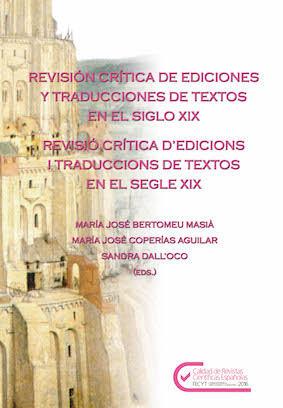Ferrarese Chronicles in the Modern Era
DOI:
https://doi.org/10.7203/qdfed.22.11256Keywords:
Ferrara, chronicles, Renaissance, antique documents, textual edition Abstract
Abstract
In 1928, Giuseppe Pardi published the first of three fifteenth century chronicles of Ferrara. His edition of one of these chronicles, the Diario ferrarese dall’anno 1409 sino al 1502, replaced the eighteenth-century version published by Ludovico Muratori. Pardi showed a modern understanding of the challenges posed by transcribing antique documents, refusing to alter any of the material, and enriching the chronicles with full scholarly apparatus. Despite the availability and easy accessibility of material unimaginable until recently, late twentieth-century transcriptions fall woefully short of the standard set by Pardi. This paper explores the transcriptions of the chronicles, in particular the Pardi editions, illustrating how the early twentieth-century was a golden age unequaled before or since.
 Downloads
Downloads
Downloads
Published
How to Cite
-
Abstract393
-
PDF (Español)573
-
PDF (Català)104
-
PDF96
Issue
Section
License
 Este obra está bajo una licencia de Creative Commons Reconocimiento-NoComercial-SinObraDerivada 4.0 Internacional.
Este obra está bajo una licencia de Creative Commons Reconocimiento-NoComercial-SinObraDerivada 4.0 Internacional.
Authors who publish with this journal agree to the following terms:
- Authors retain copyright and grant the journal right of first publication with the work simultaneously licensed under a Creative Commons Attribution License that allows others to share the work with an acknowledgement of the work's authorship and initial publication in this journal.
- Authors are able to enter into separate, additional contractual arrangements for the non-exclusive distribution of the journal's published version of the work (e.g., post it to an institutional repository or publish it in a book), with an acknowledgement of its initial publication in this journal.
- Authors are permitted and encouraged to post their work online (e.g., in institutional repositories or on their website) prior to and during the submission process, as it can lead to productive exchanges, as well as earlier and greater citation of published work (See The Effect of Open Access).




